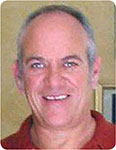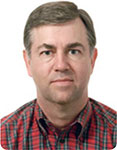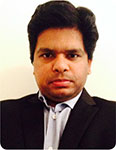ARTAM-WH: early predictive well health (WH) meta-monitoring tool
Peter Goldschmidt A , Charles Crawley A , Bashirul Haq A and Santhosh Palanisamy AA The University of Western Australia
B Chevron Energy Technology
The APPEA Journal 54(1) 147-154 https://doi.org/10.1071/AJ13016
Published: 2014
Abstract
A well performing as expected is healthy. It is essential for efficient field operations to detect well health (WH) issues that may reduce the production efficiency and/or the overall recovery of an asset. The authors describe an early predictive WH meta-monitoring tool called ARTAM-WH, developed to assist maintaining stable operations (with high recovery). This is achieved by routinely checking the relevant individual WH parameters in context with the well’s operating environment.
As alert complexity increases so does the risk of false alerts. Moreover, existing systems raise alarms/alerts after significant deviation without completing extensive cross-checking. An early predictive and WH meta-monitoring tool is highly desirable. This study fills the gap.
ARTAM-WH is a new approach designed to provide early identification of existing or developing WH issues—precursors to WH problems if not addressed. ARTAM-WH uses in-situ monitoring systems—when available—or basic pressure, temperature and flow (gas, oil, water) data, coupled with static data, and conducts preliminary analysis and proper cross-checking and then notifies the engineers/operators. Differentiating this approach is that it is not looking at small data sets but at a large palate, including both static (well construct) and dynamic current performance versus performance expectations. ARTAM-WH provides supporting evidence of WH issues to the appropriate stakeholder. Notification includes the necessary and sufficient evidence derived from approximate reasoning algorithms combining multiple variables to identify possible issues and test the WH hypotheses.
ARTAM-WH frees up engineers/operators to focus on higher priority activities such as developing solutions. This allows for handling those problems through normal planning rather than emergency fixes.

Peter Goldschmidt is a Professor in Information Management at The University of Western Australia, Business School, working in knowledge management, decision support, agent technology, and artificial intelligence applied to business. He has a BSc (Calif.) Quantitative Methods and Computer Systems, Masters Applied Econometrics (UWA), and PhD (UWA) Computer Science and Finance. Since he completed his PhD 1997, investigating and proposing a new approach to support Compliance Monitoring for Anomaly detection (CMAD) in Complex Environments, he has extended this research from CMAD for Stock Market Regulatory Surveillance to CMAD applied to the energy and petroleum industry; asset management in engineering; aerospace and defence. He holds the CMAD IP. Peter.Goldschmidt@uwa.edu.au |

Charles Crawley is an engineer with Chevron’s Technology Company. He has a degree in Electrical Engineering from The Georgia Institute Of Technology. His work experience covers production operations, major projects and technology development. For the last several years he has been very involved in the design and development of new technologies that benefit the oil and gas industry. He holds patents in downhole sensing technologies and their deployment. He has worked with universities in the US, UK and Australia on new and emerging technologies that will benefit the industry. CCHM@chevron.com |

Bashirul Haq is a petroleum engineer with 15 years of experience in research, teaching, consultancy and testing in reservoir, production and drilling engineering, and has an MSc in petroleum engineering. He received PhD in Microbial Enhanced Oil Recovery from The University of Western Australia (UWA). Dr Bashirul rendered consulting services to Chevron (USA), Helix RDS, Unocal, Bangladesh Oil, Gas & Mineral Corporation (Petrobangla), and Bangladesh Petroleum Exploration and Production Company Ltd. He worked in the UWA, CSIRO, Curtin University, and Bangladesh University of Engineering & Technology. Dr Haq was the founding member and treasurer of the SPE Bangladesh Section in 2006. haq_bashirul@yahoo.com |

Santhosh Palanisamy completed a Masters in Business Information Management at the University of Western Australia and post-graduate studies in information systems. he has a Bachelor of Engineering in electronics and communication systems from Anna University, India. Previously he worked as a programmer/analyst with Cognizant Technology Solutions. He now works at the University of Western Australia as an expert system programmer. Business intelligence, data mining, artificial intelligence, knowledge management, decision support systems and expert systems are his areas of interest. santhoshece29@gmail.com |


